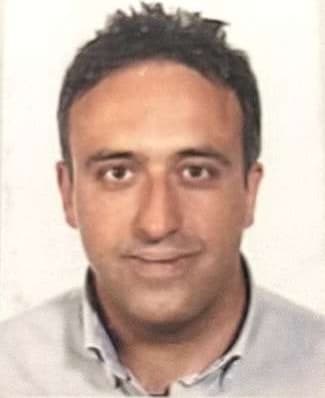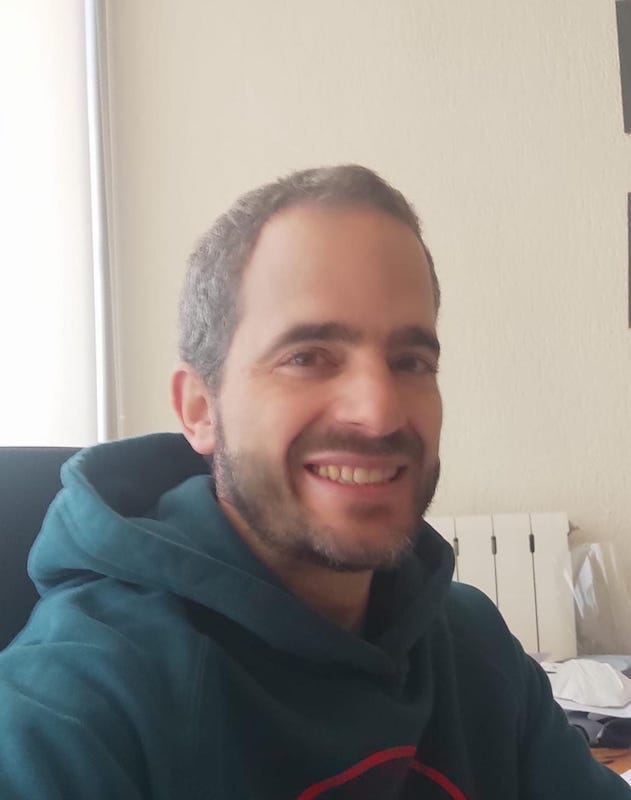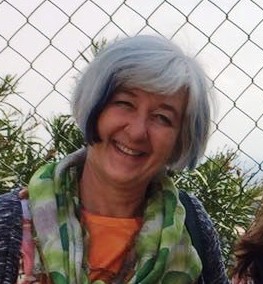Studying at the University of Verona
Here you can find information on the organisational aspects of the Programme, lecture timetables, learning activities and useful contact details for your time at the University, from enrolment to graduation.
Academic calendar
The academic calendar shows the deadlines and scheduled events that are relevant to students, teaching and technical-administrative staff of the University. Public holidays and University closures are also indicated. The academic year normally begins on 1 October each year and ends on 30 September of the following year.
Course calendar
The Academic Calendar sets out the degree programme lecture and exam timetables, as well as the relevant university closure dates..
| Period | From | To |
|---|---|---|
| I semestre (Lingue e letterature straniere) | Sep 27, 2021 | Jan 8, 2022 |
| II semestre (Lingue e letterature straniere) | Feb 14, 2022 | May 28, 2022 |
Exam calendar
Exam dates and rounds are managed by the relevant Foreign Languages and Literatures Teaching and Student Services Unit.
To view all the exam sessions available, please use the Exam dashboard on ESSE3.
If you forgot your login details or have problems logging in, please contact the relevant IT HelpDesk, or check the login details recovery web page.
Academic staff
 sara.paolini@univr.it
sara.paolini@univr.it
 daniela.spina@univr.it
daniela.spina@univr.it
Study Plan
The Study Plan includes all modules, teaching and learning activities that each student will need to undertake during their time at the University.
Please select your Study Plan based on your enrollment year.
1° Year
| Modules | Credits | TAF | SSD |
|---|
1st foreign language2nd foreign language1st foreign literature 1 LM. Forms, genres and critical approaches2nd foreign literature 1 LM. Forms, genres and critical approaches2° Year activated in the A.Y. 2022/2023
| Modules | Credits | TAF | SSD |
|---|
1st foreign literature disciplinary area2nd foreign literature disciplinary area or textual and comparative studies1st or 2nd foreign literature 2 LM. Critical methodologies and textual interpretationA philology to be chosen among the following (philology must be related to one of the chosen languages)History of the 1st or the 2nd foreign language| Modules | Credits | TAF | SSD |
|---|
1st foreign language2nd foreign language1st foreign literature 1 LM. Forms, genres and critical approaches2nd foreign literature 1 LM. Forms, genres and critical approaches| Modules | Credits | TAF | SSD |
|---|
1st foreign literature disciplinary area2nd foreign literature disciplinary area or textual and comparative studies1st or 2nd foreign literature 2 LM. Critical methodologies and textual interpretationA philology to be chosen among the following (philology must be related to one of the chosen languages)History of the 1st or the 2nd foreign language| Modules | Credits | TAF | SSD |
|---|
Legend | Type of training activity (TTA)
TAF (Type of Educational Activity) All courses and activities are classified into different types of educational activities, indicated by a letter.
Russian Literature 1 LM. Forms, genres, and critical approaches (2021/2022)
Teaching code
4S006111
Teacher
Coordinator
Credits
6
Also offered in courses:
- Pусская литература 2 LM. Mетодология критики. Kритическое чтение текста (Russian Literature 2 LM. Forms, genres and critical approaches) of the course Master’s degree in Comparative European and Non-European Languages and Literatures
- Russian literature for publishing of the course Master’s degree in Publishing and Journalism
Language
Russian
Scientific Disciplinary Sector (SSD)
L-LIN/21 - SLAVIC STUDIES
Period
I semestre (Lingue e letterature straniere) dal Sep 27, 2021 al Jan 8, 2022.
Learning outcomes
During the course the analyses of specific topics and critical approaches related to Russian literature will be carried out. At the end of the course students will be able to: 1) gain the necessary critical knowledge to understand the literary issues focused on during the course and in particular referring to narrative and poetical forms and genres (LM37), as well as to history of relations between Russian literature and the publishing world (LM19); 2) carry out a deep and coherent textual and comparative analysis using the acquired knowledge; 3) express autonomous and complex opinions about specific moments in Russian literary history and its methodological issues.
Program
ANTICANONICAL DOSTOEVSKY
Russian literature grew up from the European aesthetic canon, but it soon started deconstructing it and ince the middle of 19th century and this process led to an “anticanonical” rethinking of the arts. In this context, Fyodor Dostoevsky is to be consired as one of the most “anticanonical followers” of the literary canon. His experiments and discoveries at the level of narrative techniques, plots and characters paved the path to 20th century modernist prose.
The aim of the course is to study the challanges of Dostoevsky’s work to the European canon through a comparative analysis on the background of the history of world literature. We will focus on the following topics:
- The points of view ((Ich-Erzählung, the narrator-“chroniqueur” and other narratological strategies;
- The making of characters and plots (from notebooks to literary works; the role of graphics, drawings and calligraphy);
- Onomastikon of Dostoevsky’s oeuvre (choosing names as a creative method);
- “Poet” and “khudozhnik” in the understanding of Dostoevsky
Bibliography
Mandatory texts:
- Ф.М. Достоевский, Записки из подполья
- Ф.М. Достоевский, Братья Карамазовы
- One more work by F. Dostoevsky to choose
- M.C. Ghidini, Dostoevskij, Roma, Salerno ed., 2017
- During the course, a choice of articles and texts will be made avalable.
Антиканонический Достоевский
Русская литература, принявшая европейский эстетический канон и вскоре начинавшая его деформировать, хотя бы с середины 19 века представляется «антиканоническим» явлением в истории искусства. В этом контексте, одним из самых «антиканонических последователей» литературного канона оказался Ф.М. Достоевский, чьи находки и «эксперименты», как в плане техник повествования, так и в плане сюжетов и очертания героев, открывают путь к модернистской прозе 20 века.
Задача курса – исследовать новационные черты творчества Достоевского в сопоставлении с историей всемирной литературы и европейского канона. Будем фокусироваться на следующих темах:
- Вопросы о точке зрения (Ich-Erzählung, повествователь-«хроникер» и другие нарратологические стратегии);
- Принципы создания героев и сюжетов (от тетрадей до произведения; роль графики, рисунков, каллиграфии)
- Ономастикон произведений Достоевского (имена как творческий метод)
- «Поэт» и «художник» в понимании Достоевского
ЛИТЕРАТУРА
Обязательные тексты:
- Ф.М. Достоевский, Записки из подполья
- Ф.М. Достоевский, Братья Карамазовы
- Еще одно произведение Ф.М. Достоевского на выборе
- M.C. Ghidini, Dostoevskij, Roma, Salerno ed., 2017
- В течение курса доцент будет предоставлять статьи и тексты для анализа.
Examination Methods
Aims:
the aim of the exam is to verify:
- The acquisition by the students of the basic space-temporal and conceptual coordinates learned in the course
- The appropriate knowledge concerning the topic and the instruments analysed during the course and/or planned in the programme
- The ability to value independently e with a full knowledge of the situation the peculiar historical, social and cultural phenomena of Russia, above all those ones concerning the period analysed in the course.
Contents:
The exam will be about the contents included in the programme and about the literary, artistic and historic cultural materials analysed during the course.
Methods for conducting:
The exam is oral and is an interview during which the student must present with precision and showing the ability to judge independently about what has been learned during the course and the individual preparation. The programme is the same for both the attending and non-attending students: the last ones can find the necessary materials to study in the programme, in the lecture notes and on the e-learning internet page; they could ask the professor for additional material or explanations during the office hours if needed.
Arrangements for evaluating:
Single mark out of thirty.
Type D and Type F activities
Nei piani didattici di ciascun Corso di studio è previsto l’obbligo di conseguire un certo numero di CFU di tipologia D e di tipologia F.
CFU D (attività a scelta dello studente)
I CFU D possono essere acquisiti mediante:
- insegnamenti non obbligatori nel proprio piano didattico (previa approvazione del Presidente del Collegio didattico per insegnamenti non selezionabili in autonomia)
- attività accreditate dal Collegio didattico
- competenze linguistiche (diverse o ulteriori) rispetto a quelle obbligatorie
- tirocini o stage
- TALC (competenze trasversali).
Competenze trasversali TALC
Nota bene: i corsi TALC sono riconosciuti solo come CFU D.
Il numero di CFU D va calcolato complessivamente sull’intero triennio/biennio e non è legato all'annualità.
CFU F
I CFU F sono solitamente relativi ad abilità informatiche, competenze linguistiche, stage e tirocini e ulteriori attività formative accreditate in questa tipologia dal Collegio Didattico.
Nel corso di laurea magistrale in Comparative European and Non-European Languages and Literatures sono previste le seguenti tipologie:
- 6 CFU di ulteriori attività formative (competenze linguistiche, abilità informatiche, tirocini, stage).
Le eventuali attività di stage sono finalizzate a far acquisire allo studente una conoscenza diretta in settori di particolare utilità per l’inserimento nel mondo del lavoro e per l’acquisizione di abilità specifiche d’interesse professionale.
Documents and news
-
 A.A. 2020/2021 Descrizione del percorso di formazione - Regolamento didattico del CdS
(pdf, it, 246 KB, 13/04/21)
A.A. 2020/2021 Descrizione del percorso di formazione - Regolamento didattico del CdS
(pdf, it, 246 KB, 13/04/21)
-
 IL PERCORSO VERSO L’INSEGNAMENTO PER GLI STUDENTI DELL’AREA LINGUE E LETTERATURE STRANIERE
(pdf, it, 93 KB, 13/04/21)
IL PERCORSO VERSO L’INSEGNAMENTO PER GLI STUDENTI DELL’AREA LINGUE E LETTERATURE STRANIERE
(pdf, it, 93 KB, 13/04/21)
To discover all the teaching activities accredited by the foreign teaching college click here
Career prospects
Module/Programme news
News for students
There you will find information, resources and services useful during your time at the University (Student’s exam record, your study plan on ESSE3, Distance Learning courses, university email account, office forms, administrative procedures, etc.). You can log into MyUnivr with your GIA login details: only in this way will you be able to receive notification of all the notices from your teachers and your secretariat via email and soon also via the Univr app.
Student login and resources
Gestione carriere
Attività accreditate D/F
Calendario didattico dettagliato
Competenze linguistiche (prima e seconda lingua)
Language skills
Compilazione del piano didattico
Corso di Lingua portoghese
Double degree
The University of Verona, through a network of agreements with foreign universities, offers international courses that enable students to gain a Double/Joint degree at the time of graduation. Indeed, students enrolled in a Double/Joint degree programme will be able to obtain both the degree of the University of Verona and the degree issued by the Partner University abroad - where they are expected to attend part of the programme -, in the time it normally takes to gain a common Master’s degree. The institutions concerned shall ensure that both degrees are recognised in the two countries.
Places on these programmes are limited, and admissions and any applicable grants are subject to applicants being selected in a specific Call for applications.
The latest Call for applications for Double/Joint Degrees at the University of Verona is available now!
Documents
| Title | Info File |
|---|---|
|
|
pdf, it, 316 KB, 28/09/23 |
|
|
octet-stream, it, 22 KB, 28/09/23 |
|
|
pdf, it, 520 KB, 28/09/23 |
Erasmus+ e altre esperienze all'estero
Linguistic training CLA
Percorso verso l'insegnamento
Una delle possibilità per gli studenti dopo il conseguimento della laurea magistrale è l’insegnamento nella scuola: l’Università degli Studi di Verona è tra gli enti accreditati dal MIUR per l'erogazione di corsi di formazione e aggiornamento e qualificazione delle competenze per insegnanti. Il percorso per diventare insegnante è legato alle seguenti condizioni:
1a CONDIZIONE
Il possesso della laurea magistrale o a ciclo unico, oppure diploma di II livello dell’alta formazione artistica, musicale e coreutica, oppure titolo equipollente o equiparato, coerente con le classi di concorso vigenti alla data di indizione del concorso; il futuro insegnante dovrà, inoltre, soddisfare i requisiti di accesso previsti per la classe di concorso scelta.
Per le classi di concorso:
- A-24 (Lingue e culture straniere negli istituti di istruzione secondaria di II grado) e
- A-25 (Lingua inglese e seconda lingua comunitaria nella scuola secondaria I primo grado)
sono previsti i seguenti requisiti di accesso (vedi l’allegato A al DM 259/2017):
1) 18 CFU nei settori scientifico disciplinari L-LIN/01 e/o L-LIN/02
2) 36 CFU della lingua di specializzazione scelta
3) 24 CFU della letteratura relativa alla lingua di specializzazione scelta.
I requisiti specifici delle classi di concorso A-24 e A-25 possono essere soddisfatti nell’ambito dei piani didattici o negli esami a scelta libera superati all’interno del percorso di studio universitario (Laurea Triennale e Magistrale), oppure attraverso l’iscrizione a corsi singoli.
Il requisito relativo alla lingua di specializzazione (2) è soddisfatto (sulla base degli esami previsti nel piano didattico) nell’ambito del percorso formativo che comprende una laurea triennale dell’area di Lingue e Letterature Straniere, seguita da una laurea magistrale della medesima area (qualsiasi Corso di Laurea triennale e magistrale dell’area di Lingue e Letterature Straniere).
Per verificare i requisiti relativi alla letteratura di specializzazione (3) e agli insegnamenti di linguistica che appartengono ai settori scientifico-disciplinari di L-LIN/01 e L-LIN/02 (1), invece, gli studenti sono invitati a consultare il proprio piano didattico per verificare il numero di CFU previsti nel percorso formativo.
2a CONDIZIONE
Il possesso dei 24 crediti formativi universitari o accademici acquisiti in forma curricolare, aggiuntiva o extra curricolare nelle discipline antropo-psico-pedagogiche e nelle metodologie e tecnologie didattiche, garantendo comunque il possesso di almeno 6 CFU conseguiti in ciascuno di almeno tre dei seguenti quattro ambiti disciplinari:
1) pedagogia;
2) pedagogia speciale e didattica dell’inclusione;
3) psicologia; antropologia;
4) metodologie e tecnologie didattiche.
Percorso formativo 24 CFU
Consente di acquisire uno dei requisiti di partecipazione al concorso nazionale per l’accesso al “percorso annuale di formazione iniziale e prova” su posti comuni e di sostegno, ai sensi del D.Lgs 13 aprile 2017, n. 59 come modificato dalla legge n.145 del 30/12/2018 (c. dal 792 al 796).
I settori scientifico disciplinari, gli obiettivi formativi, le modalità organizzative e gli eventuali costi sono stati stabiliti dal D.M. 10 agosto 2017, n. 616.
Per sapere quali insegnamenti della propria carriera vengano automaticamente riconosciuti si rimanda alla pagina del sito di Ateneo dedicata al percorso formativo 24 CFU.
Si consiglia agli interessati di consultare la pagina https://www.univr.it/it/i-nostri-servizi/futuri-studenti/post-laurea/formazione-degli-insegnanti in costante aggiornamento, in particolare sezione documenti in cui vengono pubblicati formulari, programmi degli insegnamenti ed elenchi di studenti ammessi.
Tra gli insegnamenti automaticamente riconosciuti nell’ambito dei 24 CFU vi sono: Insegnamento delle lingue (L-LIN/02) e Apprendimento delle lingue (L-LIN/02), previsti nel piano didattico del curriculum Linguistico-didattico del CdS di Lingue e letterature straniere (LLS).
Gli studenti immatricolati nel CdS di LLS che hanno scelto i curricula Letterario e Artistico possono comunque inserire tali insegnamenti nel piano di studi come crediti D (a scelta libera).
Gli studenti immatricolati negli altri CdS triennali del Dipartimento di Lingue e letterature straniere (Lingue e culture per il turismo e il commercio internazionale; Lingue e culture per l’editoria [a esaurimento]; Lingue e letterature per l’editoria e i media digitali) posso inserire tali insegnamenti nella propria carriera solo su eventuale autorizzazione preventiva del Presidente del Collegio Didattico (mediante Help desk).
Il soddisfacimento della 1a e 2a condizione è requisito obbligatorio per partecipare ai concorsi di abilitazione o specifici percorsi post lauream previsti dal Ministero.
Graduation
Stage e tirocini
Le attività di stage sono finalizzate a far acquisire allo studente una conoscenza diretta in settori di particolare interesse per l’inserimento nel mondo del lavoro e per l’acquisizione di abilità professionali specifiche.
Le attività di stage sono svolte sotto la diretta responsabilità di un singolo docente presso studi professionali, enti della pubblica amministrazione, aziende accreditate dall’Ateneo veronese.
I crediti maturati in seguito ad attività di stage saranno attribuiti secondo quanto disposto nel dettaglio dal “Regolamento d’Ateneo per il riconoscimento dei crediti maturati negli stage universitari” vigente.
- Tutte le informazioni in merito agli stage per futuri studenti sono disponibili alla pagina Stage e tirocini.
- Tutte le informazioni in merito agli stage per studenti iscritti sono pubblicate in MyUnivr - come fare per - stage e tirocini.
- Tutte le informazioni in merito agli stage per le aziende sono disponili alla pagina Stage e tirocini per azienze.
Ulteriori informazioni al seguente link https://www.univr.it/it/i-nostri-servizi/gestione-carriere-studenti-lingue-e-letterature-straniere/stage-e-tirocini-lingue-e-letterature-straniere

 +39 045802 8409
+39 045802 8409



























